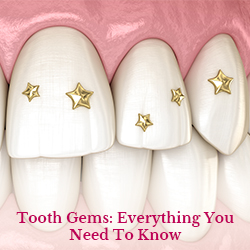What immediately springs to mind when someone says “ear infection”? It’s probably a kid pulling at their ear. The problem is that adults experience them as well, and they can be equally upsetting and painful.
You may be experiencing muffled hearing, a dull ache, or an odd pressure in your ear. An ear infection can occasionally cause vertigo or a total loss of balance. It’s, to put it mildly, annoying! However, the good news? Most ear infections are curable, and you’ll quickly return to normal with the correct treatment.
Everything from what causes ear infections to what symptoms to look out for, how to treat them, and how to prevent them will be covered in this guide
What is an Ear Infection?
Consider your ear to be a self-cleaning mechanism. It typically maintains its own health, but occasionally fungi, viruses, or bacteria infiltrate and cause problems. At that point, you develop an ear infection. The severity of the infection depends on where it occurs:
- Outer ear infection: This one can cause your ear to become red, swollen, and painful to touch because it affects the outer ear canal.
- Middle ear infection: This kind of infection occurs behind the eardrum and can result in pain, fullness, and even hearing loss.
- Inner ear infection: Less frequent but more dangerous, inner ear infections can cause nausea, vertigo, and problems with balance.
Why Do Adults Get Ear Infections
You’re asking, why me? Don’t fret, you’re not alone. Ear infections do not happen by chance; there is always a cause for them. That’s why ear infections can happen in adults:
- Cold and Sinus Infections Can Block Your Ears
When you have a cold or sinus infection, your congestion is not just in your nose but may retain fluid in your ears. Trapped ear fluid is the perfect breeding ground for bacteria to grow and form an infection.
- Water in the ear promotes the growth of bacteria
After a prolonged shower or a swim, water may be trapped within your ear canal. If it does not evaporate on its own, it creates a warm and damp environment conducive to bacterial growth, which causes infection.
- Fluid buildup can be caused by allergies
Allergies or allergic reactions during certain seasons can contribute to water retention and swelling within your ears. The water retention provides a means for bacterial breeding and leads to infections.
- Smoke and Pollution Weaken Ear Defenses
Exposure to cigarette smoke, air pollution, or other chemicals can damage the body’s own defense barriers in your ears. Poor defenses leave your ears vulnerable to infection.
- Dirty Earbuds or Listening Devices Can Grow Bacteria
Using earbuds or hearing aids for long periods without cleaning them can push bacteria into your ears. This places you at a higher risk of infection, especially when water gets trapped along with the bacteria.
How Do Doctors Diagnose an Ear Infection
A doctor isn’t going to guess what’s wrong with your ear—they’ll actually check! Here’s how they do it:
- First, they’ll take a look: Using an otoscope, they’ll check if your eardrum is red, swollen, or if there’s fluid behind it.
- Hearing test (if needed): If you’re having trouble hearing, they might test how well your ears pick up sound.
- Lab tests (in rare cases): If the infection keeps coming back, they may take a sample to see what’s causing it.
How to Treat an Ear Infection
So, you’ve got an ear infection, what’s next? The right treatment depends on how severe it is.
If it’s a mild infection, you can try:
- Rest and let your body fight it off: If it’s viral, your immune system just needs time.
- Warm compress; A warm cloth on your ear can help ease the pain.
- Pain relievers: Paracetamol or ibuprofen can help with discomfort.
- Keep your ears dry: Avoid swimming and try not to let water get inside.
If it’s a more serious infection, a doctor might recommend:
- Antibiotics (if it’s bacterial): These can be ear drops or oral medicine.
- Antifungal drops (if needed): For fungal infections, you’ll need a different treatment.
- Ear drainage (in rare cases): If fluid is stuck inside and won’t drain naturally, a small procedure might be needed.
How to Prevent Ear Infections
No one wants to deal with ear infections over and over again, so here’s what you can do to avoid them:
- Always dry your ears after showers and swimming. A quick towel wipe or a hairdryer on low can do wonders.
- Don’t put anything inside your ear. No cotton swabs, fingers, or earbuds!
- Avoid smoking and pollution. These irritate your ears and weaken their defenses.
- Clean your earbuds and hearing aids regularly. They can carry bacteria if not sanitized.
- Treat allergies and colds properly. If your nose is stuffed, your ears could be next.
How Trilife Hospital Can Help
If your ear infection isn’t going away, you don’t have to suffer in silence. Trilife Hospital’s ENT specialists are experts at diagnosing and treating ear infections.
- Experienced ENT doctors who can pinpoint the exact cause of your infection.
- Advanced diagnostic tools for accurate and quick results.
- Personalized treatment plans so you get the best care possible.
- Quick recovery strategies to help you heal faster.
Conclusion
Ear infections are painful, annoying, and can mess with your daily life. But the good news? They’re treatable and preventable. The key is early detection and the right care.
If you’ve been dealing with ear discomfort, don’t just wait for it to go away. Trilife Hospital’s ENT specialists are here to help you get the right treatment so you can hear, feel, and live better.
Book your consultation with Trilife Hospital today and let’s get your ears back to perfect health!


